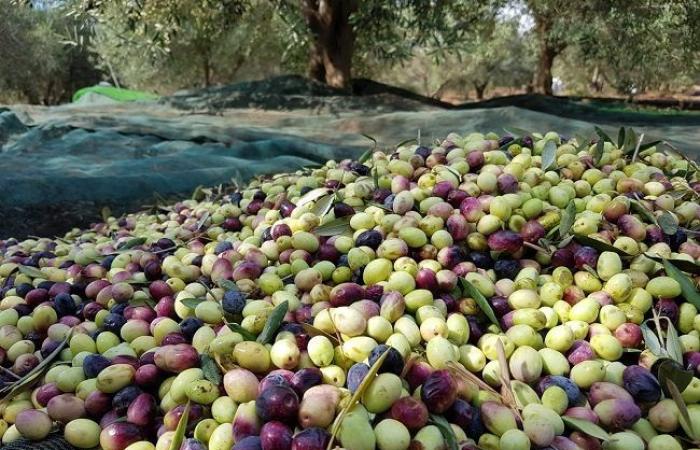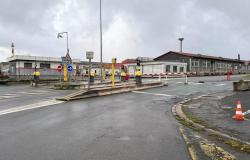The surge in olive oil prices in Algeria, which reached record levels at the start of the 2024 harvest, reflects several major difficulties hitting the olive industry.
At the dawn of this new season, the price of a liter of olive oil crossed the 1400 DA mark, marking an increase of almost 50% compared to the previous year. This sharp rise in prices is far from good news for consumers, already faced with widespread inflation, but also for producers, who must face increasingly acute structural problems.
In the wilaya of Bouira, the rise in olive oil prices at the start of this harvest is largely due to a significant drop in production. Climatic conditions, marked by prolonged drought, have considerably affected the yields of olive trees in several olive-growing regions, particularly in rural areas. “The price of a liter of olive oil is 1400 DA,” declared the owner of an oil mill located in the locality of Zeboudja, emphasizing that the price of a kilo of olives is 180 DA .
This year, the harvest is expected to be well below expectations, which is creating a shortage of olive oil on the local market. Producers, many of whom are already in difficulty, have been forced to sell their olives at higher prices, thus worsening speculation on the market. The wilaya of Bouira recorded a production of 3.2 million liters of olive oil last season (2023-2024).
Consumers, who already have to deal with rising prices, are now facing a real crisis. Olive oil, which is an integral part of Algerian cuisine, is becoming a luxury product for many families, attests a professional in the sector. Added to this are the economic difficulties linked to the decline in purchasing power, making olive oil increasingly inaccessible. Another cause of this meteoric rise in prices is speculation, a phenomenon exacerbated this year by uncertainty around production. Faced with an uncertain harvest, producers sell their olives well before the official harvest, at often very high prices, anticipating the scarcity of the product. This creates additional pressure on olive oil prices, making access to this basic product even more difficult for low-income households.
The theft of olives and the alternation of harvests aggravate the shortage and the rise in prices
The phenomenon of early sales is all the more problematic as the quantities harvested are often insufficient to satisfy already growing demand. Due to the alternation of harvests, where some years are marked by low production, followed by other years with more abundant production, price fluctuations become even more pronounced. This imbalance between supply and demand drives up prices as inventories dwindle.
Another aggravating factor is the theft of olives. In several regions of the wilaya of Bouira, olive orchards are regularly targeted by thieves. These thefts, often violent, considerably disrupt harvests, causing significant economic losses for producers. The lack of surveillance and security in rural areas exposes orchards to such practices, and operators find themselves helpless in the face of this phenomenon. The theft of olives has direct consequences on the production of olive oil, but also on the profitability of farms.
Producers, in addition to suffering from climatic hazards, are forced to face this scourge which prevents them from fully harvesting their fruits. As a result, production volumes are decreasing, which further increases price increases. One of the consequences of these multiple difficulties is the gradual abandonment of olive groves by many farmers.
Faced with increasingly low yields, lack of support and rising production costs, a large number of villagers and farmers have chosen to stop exploiting their olive-growing lands. This especially concerns small family farms, which can no longer cope with increasing production costs, particularly those linked to irrigation, the purchase of agricultural inputs and the modernization of equipment.
The abandonment of olive groves has a direct impact on the production of olive oil. Indeed, less land is cultivated, which reduces the supply of this essential product, and further increases prices. Faced with this crisis, it is essential that solutions are put in place to stabilize the olive industry. It would be necessary to put in place support programs for the modernization of olive farms, by facilitating access to credits and modern technologies.
These measures would improve the productivity of olive groves, increase yields and reduce production costs. The regeneration of abandoned land must also become a priority. Incentives to encourage the resumption of this land, as well as training programs for young people could help revitalize the sector. And to avoid future excessive price increases, it is important to develop a policy for the sustainable management of water and irrigation resources.
This would allow producers to better cope with recurring droughts and ensure more regular harvests. The current situation of the olive industry in Algeria, with the rise in olive oil prices, the theft of olives and the abandonment of olive groves, requires urgent and coordinated action.






